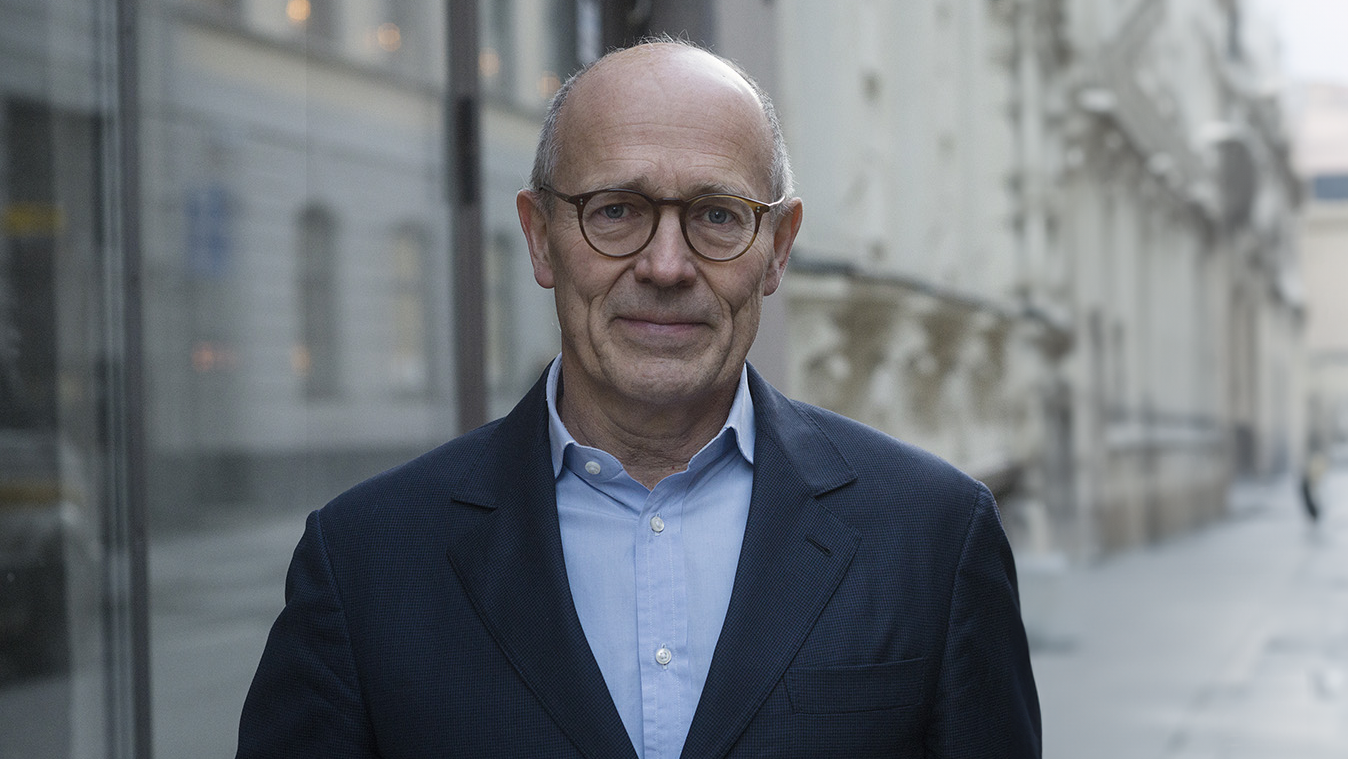“Nobody said it would be easy” — OpEd from Harald Mix, Co-Founder of Northvolt
16 October, 2024
Without a strong commitment from both business and politics – for innovation, entrepreneurship and strategic investments – we risk losing our global competitiveness and the basis for Europe's and Sweden's long-term prosperity, writes the Swedish industrialist and Chairman of Vargas Group in an opinion piece for the Swedish business daily Dagens Industri on October 15, 2024.

Northvolt Co-Founders Harald Mix, Chairman of Vargas Group (Photo kindly provided by Felix Odell)
Harald Mix is a Co-Founder of Northvolt and shareholder, Co-Founder and Chairman of Stegra (previously known as H2 Green Steel) and Chairman of Vargas Group. The following article has been translated to English and abridged, following original publication as an OpEd in Dagens Industri, October 15, 2024.
Sweden's starting position is fantastic. With access to fossil-free energy at Europe's lowest prices, good access to critical minerals and raw materials, world-leading engineering know-how, strong entrepreneurship and talent, we can become leaders in the green transition. Not taking advantage of the opportunities we have would be tragic.
Several Swedish companies have already managed to establish a lead. Although Northvolt has major challenges at present, with significant negative consequences for many of our employees and suppliers, they are at least two years ahead of other European battery ventures. And Stegra, together with SSAB and Hybrit, will ensure that Swedish steel is not only known for its quality, but also for being the greenest steel.
Sweden has a fantastic history of breaking new ground and establishing global leaders. ABB, Scania, Volvo, Klarna, Spotify, Ikea, H&M, are just a few examples. The green transition is happening now, and in order to be at the forefront, we have, for example with Northvolt and Stegra, chosen to combine proven technology and large scale, in order to be able to deliver products with the smallest possible climate impact at the lowest possible costs.
With thirty years of experience in investments and business development, I have wanted to contribute to building companies that can accelerate the green transition by clearly demonstrating the value-creating potential that it means for the companies that lead the development.
In the report on Europe's competitiveness, Mario Draghi highlights that no European company with a market capitalization of 100 billion euros was started in the last fifty years, while six American companies with a valuation of over 1,000 billion euros were created during the same period. The EU is stuck in a static industrial structure, where few new companies are able to change and innovate industries. Against this background, how should we reason in Sweden?
Is Sweden too small for investments like Northvolt and Stegra? Or do Sweden and Europe in fact need more bold ventures? I am personally convinced that the investments are right, and that they will contribute to speeding up the transition. However, one must be humble before the task. Nobody said it would be easy. Building this type of business is complex, technologically and operationally.
Great progress has been made, yet we have not come as far as we would have liked. What is not clear in the debate is that Northvolt produces the highest performance battery cells, has developed hundreds of patents and created thousands of highly skilled jobs.
Against this background, the blackwashing [critique] of the industrial projects in the north [of Sweden] is strange. Of course, projects like Northvolt and Stegra must be reviewed and evaluated, which they have been, not least by the project's financiers. Arguably, these projects have been scrutinized more rigorously than any other industrial venture in modern times. The companies have together attracted more than SEK 100 billion in private venture capital to Sweden, the overwhelming majority of which from international investors. I myself have invested more than SEK 1.5 billion in our projects, as much in total as the largest Swedish institutions.
The fact that certain debaters and lobbyists declare the municipalities of Norrland incompetent and declare a number of the world's leading investors and all the dedicated employees who work around the clock incompetent is nonsensical. Unfortunately, that type of misleading information also affects confidence in Sweden as an investment country.
Unlike Northvolt, which has so far received less than 1 percent in direct support from the Swedish state, other European battery projects have received more than SEK 20 billion in state support from France, Spain and Italy, which corresponds to approximately 20 percent of the total financing need. It is worth noting that Northvolt is the only European battery project that has started production on a commercial scale, while several of the other announced projects have been heavily scaled back or put on hold.
To date, known green investments in Swedish industry are estimated, according to Teknikföretagen, to create at least 50,000 new jobs, and thus generate tax revenue of tens of billions of kroner annually. The green investments also contribute to positive social effects nationally and regionally. According to Region Norrbotten, the green industries in the region are estimated to be able to increase Sweden's exports by approximately SEK 100 billion by the year 2030, which corresponds to more than a doubling of Norrbotten's current goods exports.
As an investor and entrepreneur, I believe in competition on equal terms. Business needs orientation and predictability. The USA and China pursue active industrial policy, which affects Sweden and the EU. We hope for fair competition without distorting subsidies, where the state's role is to invest in energy and infrastructure development, competence provision, simplified permit processes and reasonable risk sharing. Without a strong commitment from both business and politics – for innovation, entrepreneurship and strategic investments – we risk losing our global competitiveness and the basis for Europe's and Sweden's long-term prosperity.
Photo above kindly provided by Felix Odell. To read the full article in Swedish, please follow the link below to Dagens Industri.